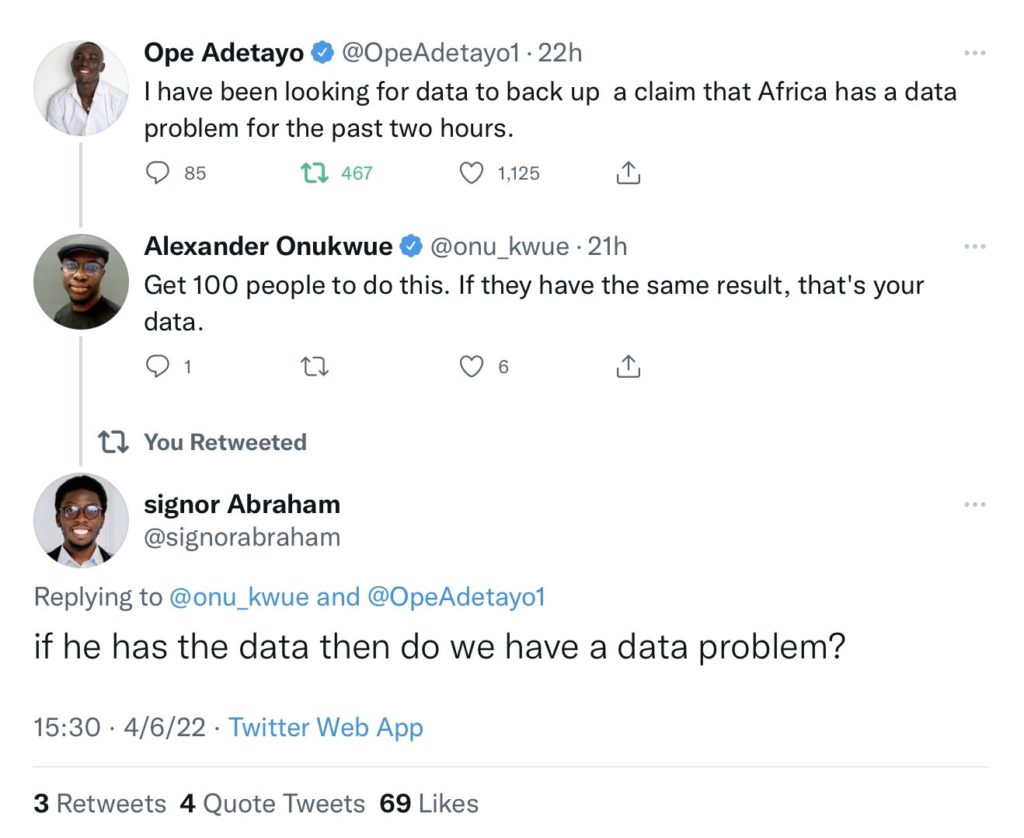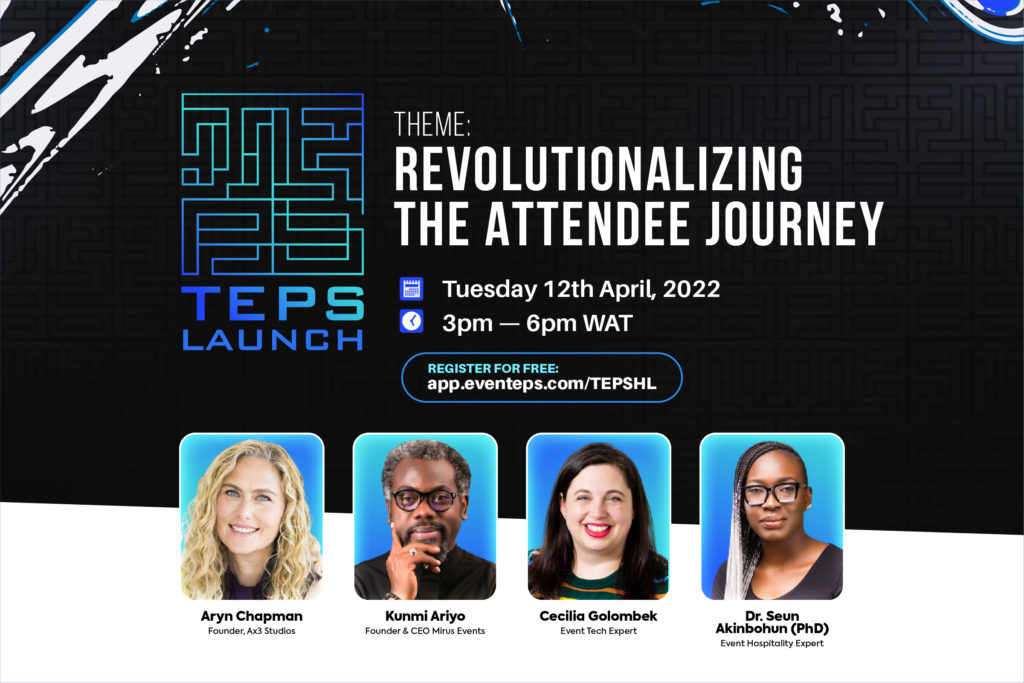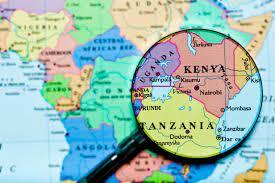
April 10, 2022
The Next Wave provides a futuristic analysis of BizTech and innovation in Africa. Subscribe here to get it directly in your inbox on Sundays at 3 PM (WAT).
Last week, journalist Ope Adetayo, tweeted: “I have been looking for data to back up a claim that Africa has a data problem for the past two hours.”
The tweet went viral spawning commentary about a not-so-new problem in Africa: the lack of accurate and up-to-date records.
As you will notice, something is different about this edition of Next Wave. There are no charts. Because, how do you visually represent the absence of accurate and publicly accessible data about Africa?
Why is data hard to come by in Africa?
Since prehistoric times, our species have understood the need to mark their existence on earth. The methods were crude—rock carvings or cave paintings with red ochre—until written records became a thing. The deliberate observation, collecting and preservation of natural and human events has a long history.

Rewind to pre-colonial Africa.
There is a tendency to over romanticise Africa’s pre-colonial history when the cold truth, is in fact, uglier than Walter Rodney would have liked. Add to this the fact that, at the time written records were common throughout Europe and Asia, much of Africa still transmitted historical records orally. In some cases where writing systems existed, like the Nsibidi system in southeastern Nigeria, only members of the Ekpe cult were permitted to learn it.
However, one of the features of the newly post-colonial Africa was an abundance of records—which is partly how we were able to measure, to some degree, the horrible effects of colonialism. In the October 2006 edition of New African—the same edition that inspired me to seek Africa’s great past—Vincent Hiribarren, a lecturer at King’s College London explains: “From the post-independence period onwards, from the 1950s, we had the construction of physical archive centres across Africa, and you had purpose-built buildings erected just for that purpose, and historians and journalists made use of them straight away.”
That enthusiasm for record-keeping however did not last, especially in anglophone Africa. Says Hiribarren, “Nigeria is a situation that is not as good as it used to be. Nigeria’s archives used to be much better, in the 1950s and 60s, until the Biafran civil war. After the war, the situation deteriorated quite quickly. But I think Nigeria used to be a good example of how to organise state archives.”
Partner Message

Experience the power of TEPS! You’re invited to a first-of-its-kind event platform created by renowned event tech expert, Tobi Olanihun. The online launch converges key industry players from all over the world. Activities: A panel chat, networking, demo and more!
Register FREE
This disregard for historical data only grew worse, progressing to an inability to maintain simple records about the economy, population, and social services.
In fact, as I alluded to here, the problem is not, as Adetayo thought, a lack of data. It is ownership and access. “There is data, but there is an access problem, and a lack of collection problem. NGOs and DFIs have most of our data,” tweeted Osaretin Asemota. Indeed, it appears that our governments do not really care. “When statisticians decided to track how well African countries were doing in moving towards their 2030 UN sustainable development goals,” David Pilling writes for Financial Times, “they discovered a curious thing: no one had the faintest idea. More accurately, on average, African governments keep statistics covering only about a third of the relevant data.”
Data about Africa may be hard to find, but the cost of not knowing ourselves is clear. Poor-to-wishful policymaking and outsourced development thinking stunt development and make us vulnerable to the whims of whoever has and controls data
Partner Message

Receive money from over 30 countries directly to your bank account or mobile wallet. Visit send.flutterwave.com and do it now!
We can begin to fix it by caring
As Africa’s tech sector gains traction beyond pitch competitions and matures into real solutions, it is quickly discovering that building software solutions is hopeless if you are only guessing at the scale and market opportunity of the problem.
But having data is only one step toward solving the problem. Data, by itself, is nothing. It’s just numbers and text. It is deciphering, sharing, and using information from datasets that is powerful. This is the real failure.
In other words, African governments and even the private sector have failed to even utilise the data at their disposal to formulate policy and lead state action because it is easier and profitable for politicians to remain oblivious of how to improve the general well-being of their constituents.
Humans are bad at managing and visualising scale—especially over time. And until we recognise the pivotal value of not having to guesstimate in tech, health, business, and governments, building sustainably at scale will remain out of reach.
From the Cabal
How much time per week do you spend paying bills? How many different apps do you use? And how many bank accounts and cards do you shuffle through for every bill?
What if there is an easier and more convenient way to do this on just one platform? Read more about how iRecharge allows you do this here.
Have a great week.
Thank you for reading The Next Wave. Please share today’s edition with your network on WhatsApp, Telegram and other platforms, and reply to this email to let us know what we can be better at.
Subscribe to our TC Daily Newsletter to receive all the technology and business stories you need each weekday at 7 AM (WAT).
Follow TechCabal on Twitter, Instagram, Facebook, and LinkedIn to stay engaged in our real-time conversations on tech and innovation in Africa.

















